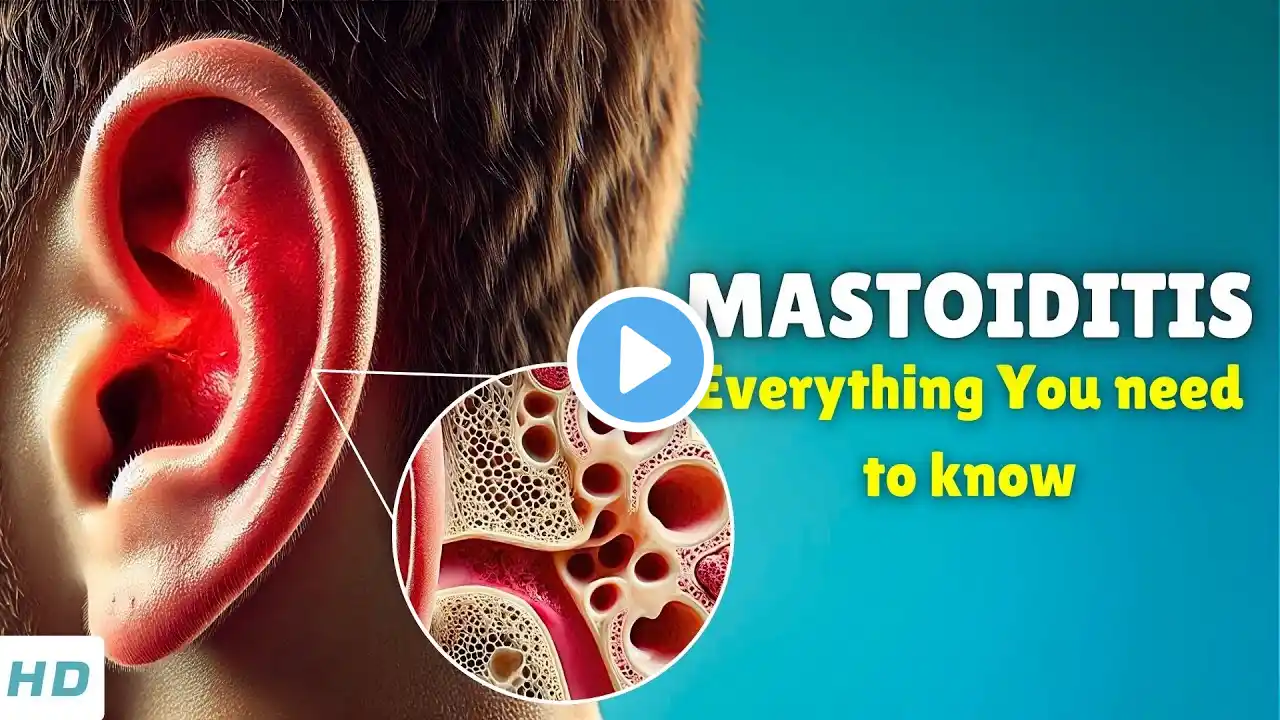
Mastoiditis causes symptoms and treatment
Mastoiditis is an infection of the mastoid bone, the bony bump you can feel right behind your ear. This bone is like a honeycomb, filled with air cells that connect to the middle ear. How does it happen? Middle ear infection (otitis media): Mastoiditis usually starts as a complication of a middle ear infection that hasn't been treated or hasn't fully cleared up. Bacteria from the middle ear can travel into those mastoid air cells, causing inflammation and infection. Symptoms Ear pain (otalgia): This can be persistent and throbbing. Swelling and tenderness behind the ear: The area may feel warm and look red. Drainage from the ear: You might see pus or fluid draining from the ear canal. Fever: A sign your body is fighting infection. Headache: Can be caused by the pressure from the infection. Hearing loss: Possible due to the inflammation affecting the middle ear. Feeling of fullness in the ear In infants, the signs might be less obvious and include: Irritability or fussiness Poor feeding Diarrhea Diagnosis Physical exam: Your doctor will look at your ear and the area behind it. Otoscopy: A lighted instrument is used to look inside the ear canal. Imaging tests: CT scan: This gives a detailed picture of the mastoid bone to see how far the infection has spread. MRI: May be used in some cases. Treatment Antibiotics: These are essential to fight the bacterial infection. You might need intravenous (IV) antibiotics at first, followed by oral antibiotics. Drainage of the infection: Sometimes, a small procedure called a myringotomy is done to drain fluid from the middle ear. Mastoidectomy: If antibiotics don't work or there are complications, surgery might be needed to remove the infected parts of the mastoid bone. Complications If mastoiditis isn't treated, it can cause serious problems like: Hearing loss: Permanent damage can occur. Spread of infection: The infection can spread to nearby structures like the brain, the meninges (membranes around the brain), or the facial nerve. Blood clots Bone destruction Important Note: If you suspect mastoiditis in yourself or your child, see a doctor immediately. Early treatment is vital to prevent serious complications.


















